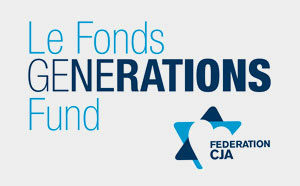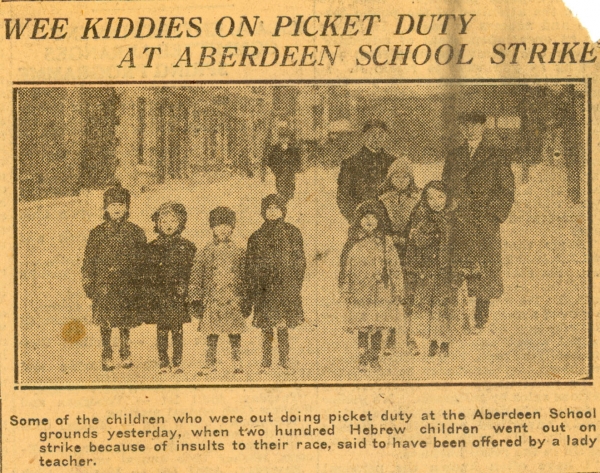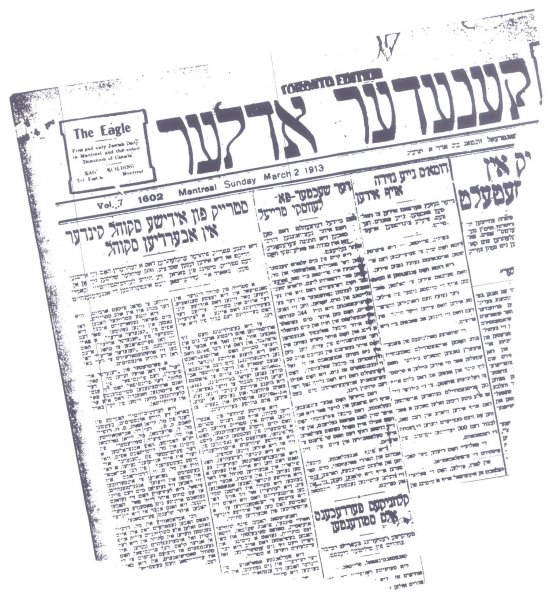Aberdeen School Strike
1913 - 1913
3535 St-Denis
On February 28, 1913, as many as 500 Jewish students at Aberdeen School walked out of their classrooms as part of a general strike. What incited the rebellion and swift organization of children no older than age twelve? The previous day, a grade six teacher – one Miss McKinley – told her pupils that the increasing “dirtiness” of Aberdeen School coincided with a growing number of Jewish students. That same day, five students from her class – Moses Margolis, Joe Orenstein, Frank Sherman, Harry Singer, and Moses Skibelsky – met to discuss and plan a response to her comments.
After unsuccessfully demanding an apology from their teacher, the boys led their peers in a strike that commenced the following morning. Setting up headquarters in Saint Louis Square (across the street from their school on St. Denis), they quickly formed a strike committee. The strike leaders instructed the other children to maintain their ranks; any student who returned to school pre-emptively would be considered a scab. Their list of demands was short: the teacher ought to be transferred to another school.
Aberdeen School, which had a large majority of Jewish students but was part of the Protestant school system, was filled with working-class children: even for the very youngest of the protestors, the organization and ethics of striking seemed to come intuitively. Indeed, the children had many role models, particularly from the massive garment workers’ strike of 1912. Over the course of the day, the students picketed the school, marched to the offices of the Keneder Adler to give an interview, and went to the Baron de Hirsch Institute in pursuit of (adult) representation.
Rabbi Herman Abramowitz of Congregation Shaar Hashomayim and lawyer S. W. Jacobs acted as envoys for the children, meeting with the school’s principal. Declining to comment publicly on the strike, the principal deferred the matter to school commissioners. Meanwhile, Miss McKinley offered a retraction of sorts: she claimed to regret having made comments that were “misunderstood by the children.” Though this was not considered a sufficient apology, the strike committee agreed to return to school on Monday, allowing their adult representatives to finesse negotiations. The teacher was eventually transferred to another class, and commissioners made a point of hiring some Jewish teachers the following year, a long-standing demand of the Jewish community that the Protestant School Board had been loath to satisfy. It would take years, though, for larger numbers of Jewish teachers to be hired.
For many Jews, the event was a clarion call for more justice in the Protestant School Board for Jewish students and their parents. Many immigrant “downtowner” Jews would soon begin to voice support for a separate Jewish school board, a demand that would ultimately divide the Jewish community during the time of the “Jewish School Question” a decade later. The strike was celebrated as a great victory for the hundreds of children who protested, and for the Montreal Jewish community at large.
Compiled by Sarah Woolf
Links
Liens
"Strikes Are Old-School in Quebec" - Montreal Gazette"Wee Kids on Picket Duty and the Aberdeen School Strike," Interview with Mary Anna Poutanen and Rod MacLeod - Third Solitude Series
Sources
Brainin, Reuben. "Strike of Yiddish School Children in Aberdeen School (March 2, 1913)." Through the Eyes of The Eagle : the Early Montreal Yiddish Press (1907-1916). Ed. Pierre Anctil. Montreal: Véhicule Press, 2001.
MacLeod, Roderick and Mary Anne Poutanen. A Meeting of the People: School Boards and Protestant Communities in Quebec, 1801-1998. Montreal: McGill-Queen's UP, 2004.
Medres, Israel. Montreal of Yesterday: Jewish Life in Montreal, 1900-1920. Montreal: Vehicule Press, 2000.
Oliver, Michael. The Passionate Debate : the Social and Political Ideas of Quebec Nationalism, 1920-1945. Montreal: Véhicule Press, 1991.
Wolofsky, Hirsch. Mayn Lebns Rayze: un demi-siècle de vie Yiddish à Montréal et ailleurs dans le monde, 1946. Trans. Pierre Anctil. Sillery: Septentrion, 2000.
*Images courtesy of the Canadian Jewish Congress Charities Committee National Archives.


This project is funded in part by the Government of Canada.
Ce projet est financé en partie par le gouvernement du Canada.
Ce projet est financé en partie par le gouvernement du Canada.
This project is funded in part by the Government of Canada.
© 2011-2015 Museum of Jewish Montreal, All Rights Reserved.
Site by Air Code Design inc. ![]()
© 2011-2015 Musée du Montréal Juïf, Tous droits réservés. Site par Air Code Design inc. ![]()





